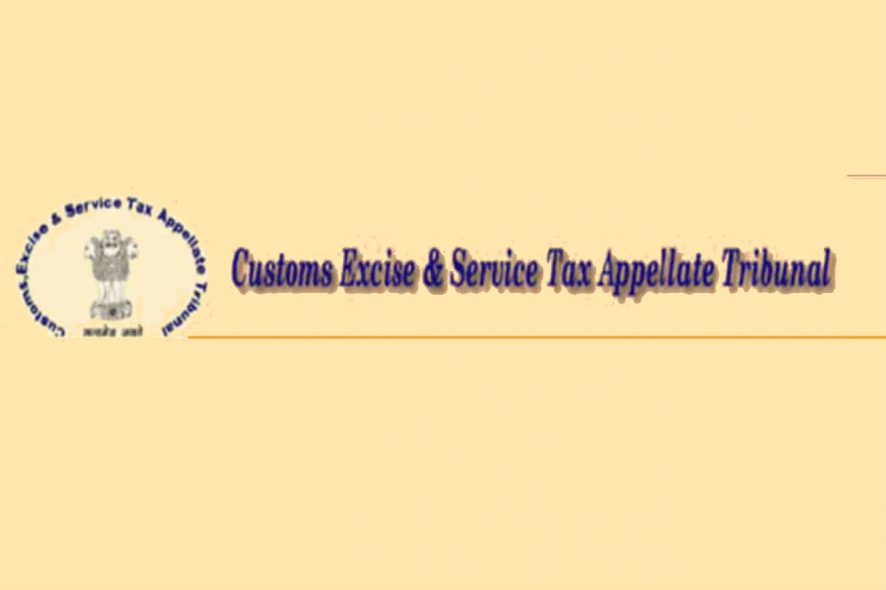Customs, Excise and Services Tax Appellate Tribunal (CESTAT): Anil Choudhary (Judicial Member) allowed the appeals which were filed against the common Order-in-Appeal which dealt with the issue as to whether the services provided by the appellant to its parent company in Hong Kong, could be treated as export of services, and if the answer was in affirmative, whether the refund of amount paid under mistake of law by treating such export of services, as taxable service, could be denied by the revenue.
Appellant (M/s CHF Industries India (P) Ltd.) was a wholly owned subsidiary of M/s CHF International Limited, Hong Kong. The appellant was incorporated under the Companies Act, 2013, and was having service tax registration. They provided services in the nature of „assistance in procurement of goods‟ by the parent company in Hong Kong, directly from third parties in India during October, 2015 to March, 2016 and April, 2016 to September, 2016. For the services so provided, the appellant raised invoice for reimbursement of expenses, without charging any service tax and payment for the same was received by the appellant in convertible foreign exchange. The appellant erroneously paid service tax of Rs. 12,84,404/- for the period October, 2015 to March, 2016 and Rs. 9,82,965/- for the period April, 2016 to September, 2016 on wrong legal advice. Subsequently, appellant filed revised returns for both the periods and the entire amount received in convertible foreign exchange was claimed exempt, against “export of services”. The refund claims were rejected by the Assistant Commissioner on the ground that clause (d) & (f) of Rule 6A(1) of Service Tax Rules, 1994, were not fulfilled i.e. place of provision of service was not outside India, and the provider of service and recipient of service were establishments of same person, under Explanation 3(b) of clause (44) of Section 65B of the Act. The appeals of the same were dismissed by Commissioner (Appeals), thus the instant appeal was filed.
The Tribunal concluded that the appellant as well as its parent company in Hong Kong were separate legal entities and therefore they cannot be treated as “same person”. Merely because the parent company in Hong Kong is a holding company of the appellant, the same does not means that the appellant and its parent company are same “person”. The Tribunal relied upon the Supreme Court judgment in Vodafone International Holdings BV v. Union of India, (2012) 6 SCC 613 where it was held,
“72. The approach of both the corporate and tax laws, particularly in the matter of corporate taxation, generally is founded on the abovementioned separate entity principle i.e. treat a company as a separate person. The Income Tax Act, 1961, in the matter of corporate taxation, is founded on the principle of the independence of companies and other entities subject to income tax. Companies and other entities are viewed as economic entities with legal independence vis-à-vis their shareholders/participants. It is fairly well accepted that a subsidiary and its parent are totally distinct taxpayers. Consequently, the entities subject to income tax are taxed on profits derived by them on stand-alone basis, irrespective of their actual degree of economic independence and regardless of whether profits are reserved or distributed to the shareholders/participants. Furthermore, shareholders/ participants that are subject to (personal or corporate) income tax, are generally taxed on profits derived in consideration of their shareholding/participations, such as capital gains. Nowadays, it is fairly well settled that for tax treaty purposes a subsidiary and its parent are also totally separate and distinct taxpayers.”
The Tribunal further added that in the present case appellant is neither arranging nor facilitating provision of service between the parent company at Hong Kong and the third parties in India but is providing its services directly, on its own account, on principal to principal basis, hence appellant is not an “intermediary” and services provided by the appellant to its parent company in Hong Kong cannot be categorized as “intermediary services”.
The Tribunal allowing the appeals finally held that Rule 2(f) read with Rule 9 of Place of provision of Service Rules, 2012, clearly provides that „intermediary‟ which means one who procure or an agent, does not include a person who provides the main service or supply of goods on his account directing the Adjudicating Authority to grant the refund within a period of thirty days from the date of receipt of this order, alongwith interest @12% per annum.[CHF Industries India (P) Ltd. v. Commr. Of CGST, Service Tax Appeal No. 70457 of 2020, decided on 08-10-2021]
Suchita Shukla, Editorial Assistant has reported this brief.







The issues of tax paid under mistake of law would help a lot of litigants.